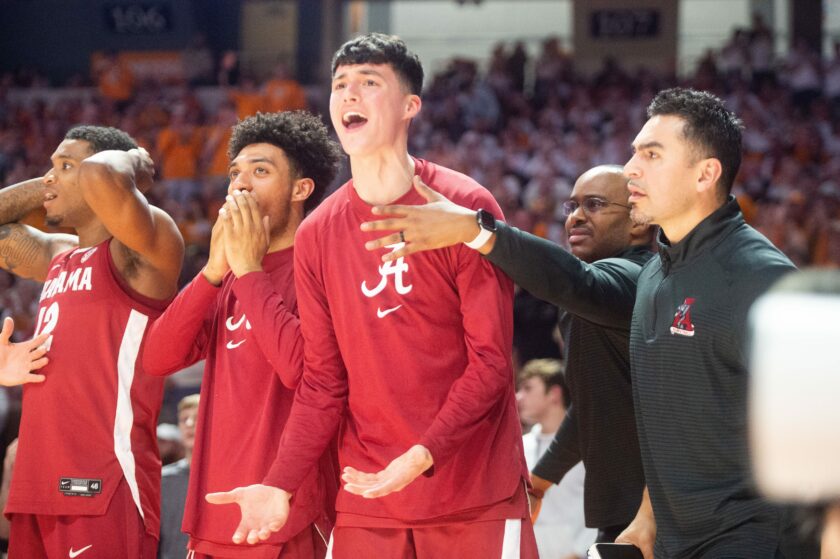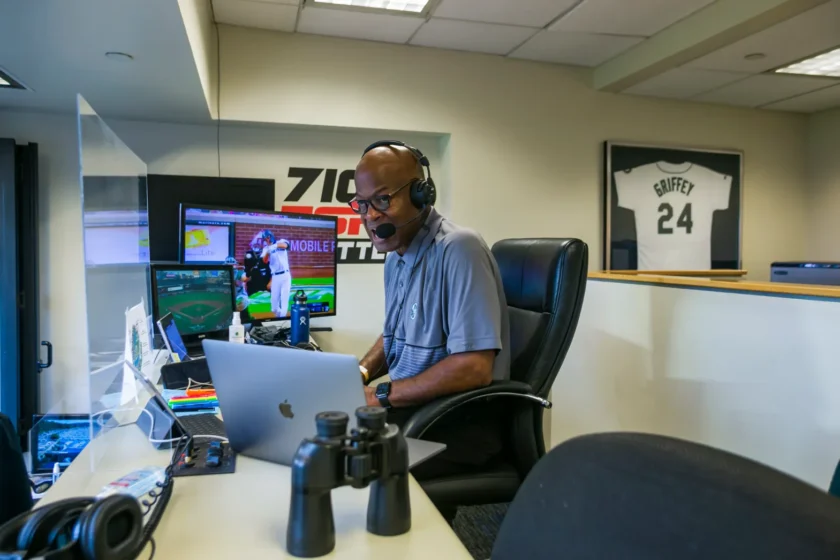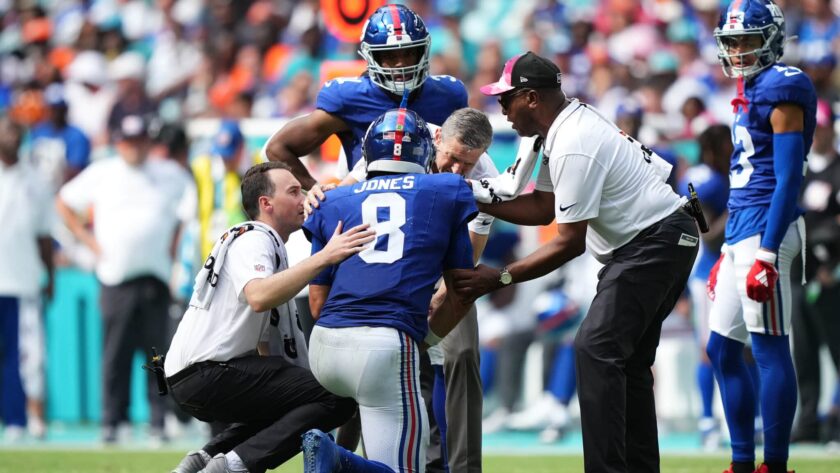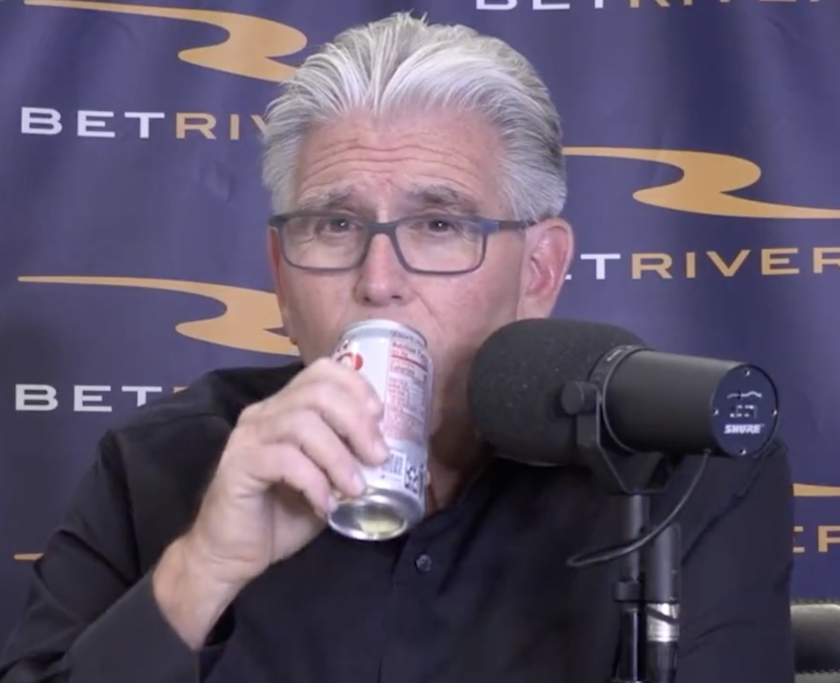Alabama hoops player vs. New York Times will be fascinating sports media story

The New York Times dropped what appeared to be a bombshell back in March, reporting that another Alabama men’s basketball player had been present at the deadly shooting that marred the highly-ranked team’s season.
At the time, only three Crimson Tide players were known to have been at the scene — Darius Miles, who was charged with the murder of Jamea Harris, and teammates Jaden Bradley and Brandon Miller, who were not charged. But The Times’ Billy Witz then reported, citing “a person familiar with the case,” that walk-on Kai Spears was also there.
Spears, his family and Alabama then adamantly denied and refuted The Times’ reporting. And now Spears is suing. From The Washington Post:
An Alabama men’s basketball player sued the New York Times for defamation Wednesday, saying the newspaper falsely placed him at the scene of a deadly shooting in Tuscaloosa, Ala.
Kai Spears, a freshman walk-on, said in the complaint and in a subsequent interview that he was at his dorm with friends Jan. 15 when 23-year-old Jamea Jonae Harris was fatally shot. The lawsuit, filed in federal court in Alabama, includes a sworn affidavit from one of two friends who said he was with Spears that night.
“I was not anywhere near the scene or vicinity at the time that took place,” Spears said in an interview. “I don’t think it is a mistaken identity. I just think they didn’t do their due diligence.”
(…)
In response to the lawsuit, Times spokeswoman Danielle Rhoades Ha said, “We plan to defend against the suit vigorously.” The paper previously said it stands by its reporting, and the lawsuit says the Times didn’t act on Spears’s request for a retraction.
It is going to be interesting to see how this all plays out for myriad reasons.
Spears provides a timeline for his whereabouts on the night of the shooting, according to The Post, and says Tuscaloosa police “conclusively established” he was not at the scene after speaking with him. But police have never confirmed this publicly and did not respond to The Post’s request for comment. And Spears says left the vicinity of the shooting mere minutes before the shooting occurred.
Moreover, Times reporter Billy Witz approached Spears in an open locker room before an NCAA Tournament shoot around and asked him two questions about being present at the scene. Spears refused to speak to him, according to the lawsuit. But Spears did not deny he was present at the shooting. And Alabama did not respond to Witz’s request for comment before the story was published, although it claims it only received notice three hours before publication and was never given a deadline. All denials only came after the story was published. And The Times has never backed away from its reporting.
Our take: There is always risk in reporting on law enforcement matters without documents or on-the-record confirmation. But you would assume The Times believed the information was air-tight. And the fact police have remained mum cannot be ignored.
We would also argue it is hard to claim The Times failed to do “due diligence” when Spears and the athletics department both declined to answer questions prior to publication. Especially ones where a simple “he was not there, that is not true” would have started the process. It is also a bit surprising how adamant and involved the university’s public relations arm has been in what is effectively a situation involving a student’s personal life.
It will be hard for Spears to win this case. You figure it will never get that far, though. But if it does, discovery will be fun.
James Kratch can be reached at james.kratch@xlmedia.com. Follow him on Twitter @jameskratch.
James Kratch is the managing editor of ESNY. He previously worked as a Rutgers and Giants (and Mike Francesa) beat reporter for NJ Advance Media.






